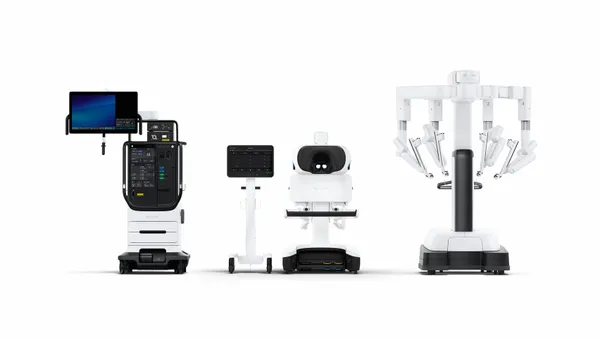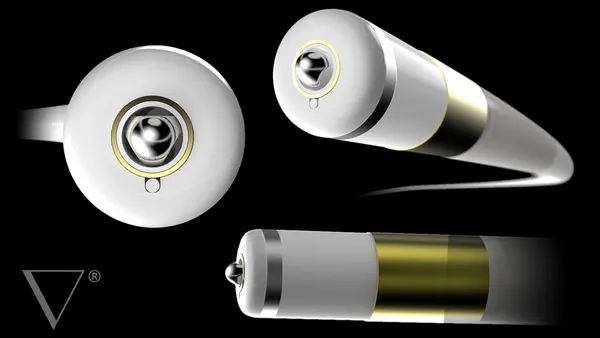Dive Brief:
-
AngioDynamics is set to acquire RadiaDyne and its devices for monitoring the doses cancer patients receive during radiation therapy.
-
The centerpiece of the takeover is RadiaDyne's OARtrac, a FDA-cleared system that gives physicians the real-time dosing data they need to provide adaptive radiotherapy. AngioDynamics will also add the medtech company's IsoLoc, ImmobiLoc and Alatus balloon stabilizing devices to its oncology portfolio.
-
RadiaDyne thinks AngioDynamics' commercial infrastructure will help it to grow sales beyond the $6 million achieved over the past 12 months.
Dive Insight:
Radiotherapy treatments need to deliver enough radiation to kill cancer cells, but not so much that it causes excessive damage to healthy tissue. Physicians’ ability to tread this fine line between efficacy and safety is constrained by shortcomings in dosing data. If a physician is to strike the perfect balance between safety and efficacy, they need accurate real-time data on the radiation levels in and around the target tissues.
RadiaDyne thinks OARtrac can provide such data. The system features a dosimeter known as a plastic scintillating detector (PSD). When radiation interacts with the PSD, visible light is created. The light passes along an optical fiber and into the OARtrac device, where it is measured, digitized and converted into a dose. The speed of this process means the physician has real-time data.
By comparing the level of radiation the patient is receiving to the planned dose, the physician can assess whether the procedure is progressing as expected. Based on that feedback, the physician can adjust the treatment.
Leaders at AngioDynamics and RadiaDyne think OARtrac will benefit from the backing of a bigger commercial organization.
"We are proud of our technologies, which improve radiation delivery and lower side effects for patients undergoing radiation therapy for cancer treatment. This partnership immediately strengthens our commercial infrastructure, allowing us to deliver the benefits of our innovative products to a wider patient population," RadiaDyne CEO John Isham said in a statement.
RadiaDyne has other products in its portfolio, too. The rest of the range includes a vaginal balloon packing system to reduce the side effects of radiotherapy and a gas-removal device designed to limit movement of the prostate during treatment.
The deal is expected to close at the end of this month and be neutral to AngioDynamics' earnings.












